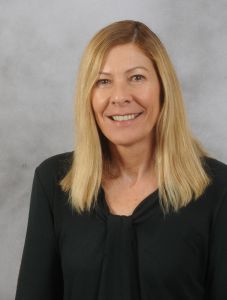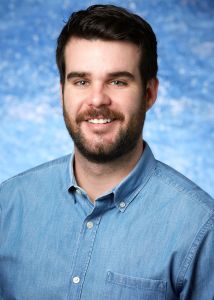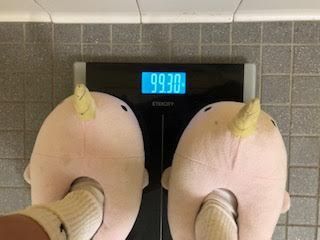Eating disorders: not a choice or a lifestyle

Sam Mottolo, a freshman environmental science major at Saint Joseph’s University, is in recovery from her eating disorder. Her relationship with food has been an issue that’s come in waves since she was 10-11 years old. She had a lot going on which felt out of control and food was something she could control.
“Bringing myself to get help was not easy,” Mottolo said. “It took courage because I just felt embarrassed at first, but I very quickly learned that there was nothing to be embarrassed about.”
Mottolo realized something was off when she was missing out on hanging with friends. It got to a point of feeling mentally and physically drained. The most distinct memory of knowing she needed help was when she didn’t have the energy to simply walk around with friends without feeling like she was going to pass out. When an eating disorder affects your quality of life, that’s when it’s time to seek help. She knew the number on the scale was affecting her but didn’t project anything else being impacted.
“I grew afraid I wouldn’t look the way society wanted and my control issue with food quickly became an obsession,” Mottolo said.
Eating disorders are not a choice nor a lifestyle. Telling someone that this illness is a choice is a misinterpretation of the subject. Eating disorders are the 3rd most common chronic illness among adolescent females.
When Mottolo hit high school, specifically in her junior year, she hit the tipping point. She was constantly analyzing herself in the mirror, on a scale or simply thinking of the next meal in unhealthy ways. Today, she doesn’t go near a scale anymore, she doesn’t look in the mirror too long.
Mottolo wants anyone who is struggling with an eating disorder to understand they are not alone. She wants everyone to understand that eating disorders are more common than you’d think and there are so many people who empathize, who can be a support system.
After telling her friends about what she was going through they helped her grow and that helped her mindset in recovery. “As someone who knows how scary it can be to start on the recovery journey, I want to tell you it is so worth it,” Mottolo said.
“I find myself very nervous of even the chance of getting into the old habits,” Mottolo said. “That is something that’s still on my mind a lot and I am still learning to be comfortable in my own skin.”
What do the professionals say?

Dr. Sandy Sarcona, a registered dietician nutritionist, provided further advice. She has helped with specific diets due to different diseases, provided nutrition counseling for weight management, conducted wellness and fitness programs, worked with college athletes on peak performance with nutrition and is currently a professor of nutrition at West Chester University.
Sarcona mentioned that someone who’s trying to learn more about eating disorders should know it starts with attitudes about food and body image. This stems right from infancy as parents and caregivers can interfere with appetite regulation. “Parents and caregivers should plan and provide what the child eats,” Sarcona said in an email interview.
She further mentioned intuitive eating which is listening to our inner body, eating when we’re hungry and stopping when we are full. Sarcona also believes disordered eating begins when we look at foods labeled “good” and “bad” since we may feel guilty when we eat less healthy foods. She said she likes to use the motto “all foods can fit” where we should let ourselves have some cake and just enjoy it.
Over her time as a dietician and nutritionist, she’s given workshops in middle schools on body image since this is the prime time when bodies start changing. “Letting adolescents know that body acceptance is so important, and that dieting can be dangerous and lead to disordered eating,” Sarcona said. By keeping your body physically active, opting for healthier foods and taking care of your body, it can produce a more positive approach.
In the email interview, she provided helpful resources from the National Eating Disorders Association (NEDA) and from the Academy of Nutrition and Dietetics. She has contributed to the book “Intuitive Eating, A Revolutionary Anti-Diet Approach,” by Evelyn Tribole and Elyse Resch.
“Small steps are much better than stringent dieting,” Sarcona said. “I wish for all adolescents to feel more comfortable in their own body and to have a good relationship with food that means enjoying a variety of foods!”

A clinical psychologist is another person someone with an eating disorder could reach out to for help. Brian Peightal, a licensed clinical psychologist, said, “I try to advocate by providing workshops on-campus, nurturing a safe place to explore body image, and remaining up to date on current literature and resources,” Peightal said. “To be the best referral source I can is the most impactful role I can play for an individual.”
Peightal has always been a good listener and helper when it comes to his personal life. Over time, eating disorders have affected him in both his personal and professional life, forming a sensitivity to the environment around him.
“As a professional, it challenges me to be the best source of support I can be for someone struggling with these disorders,” Peightal said. From his perspective, he knows the impossible and unrealistic pressures that are placed onto females, specifically young women. He takes this understanding to reflect on himself to be conscious of any messages he extends to the audience in front of him.
Peightal wants anyone who is struggling with an eating disorder to know that we as human beings are not fixed with no potential for growth. When something traumatic or an experience changes us, we adapt and evolve. Human beings are very capable of fluctuating towards a positive direction. He mentioned validation being a step in the difficult nature of recovery so the person who has the eating disorder can have encouragement and a support system. It’s a hard and difficult journey to recovery that needs positive reassurance.
“I think the world would be a better place if we all thought a bit more about how our actions impact others,” Peightal said.
Cabrini senior reflects on eating disorders

Juliana Khanuja, a senior exercise science and health promotion major, has had friends who had eating disorders. She noticed her friend changing from being so happy to not so much anymore.
“I saw her body changing with a dramatic weight loss in a small amount of time,” Khanuja said.
Being the kind and supportive friend Khanuja is, she reassured her friend that she will always be there for her. Since she’s an exercise science and health promotion major, she could give her friend some advice on basic nutrition to keep a healthy mindset but never being pushy.
“My best friend is at a healthy weight currently and isn’t as self-conscious about what she eats,” Khanuja said. “She enjoys food now and makes sure that she eats without feeling guilty.”


